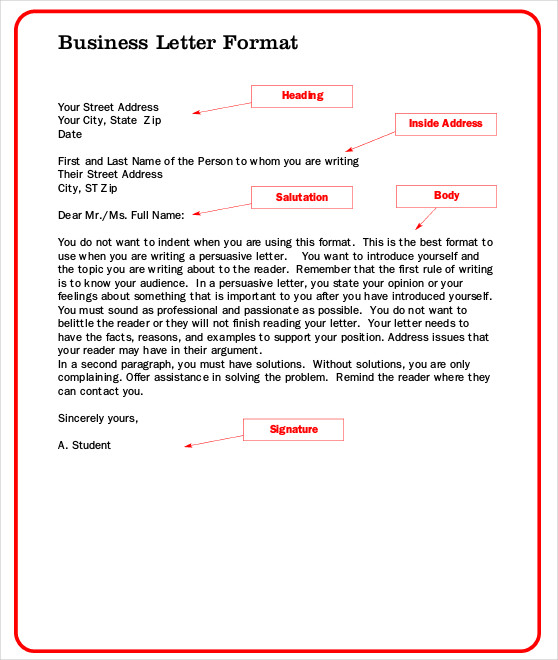Ever found yourself facing a mountain of envelopes, each with a name painstakingly handwritten on the front? You’re not alone. Sending business letters to multiple recipients can feel like a gargantuan task, especially if you’re aiming for a professional and efficient approach.

Image: www.aiophotoz.com
But fear not! Mastering the art of addressing business letters to multiple recipients is a skill that can save you time, effort, and a hefty dose of frustration. We’ll dive into the etiquette, techniques, and strategies to make this process a breeze, ensuring your correspondence reaches the right hands while maintaining a polished and professional image.
Understanding Different Addressing Scenarios
Before we delve into the nitty-gritty of addressing details, let’s categorize the most common scenarios you might encounter when sending letters to multiple recipients:
1. Sending to a Single Company With Multiple Individuals
This scenario often arises when you’re sending information or proposals to different departments or individuals within a single organization. You might need to address the letter to:
- Individual Attention: “Attention: [Recipient Name]”
- Department: “Department of [Department Name]”
- Specific Team: “The Marketing Team”
2. Sending to Multiple Individuals at Different Organizations
When your correspondence is directed to individuals at separate organizations, a personalized approach is essential. You’ll need to address each letter individually, focusing on the recipient’s name and their relevant title.

Image: letterformat22.blogspot.com
3. Sending to a Group of Individuals Within a Single Organization
This might involve sending a group email or a personalized letter to a specific team, committee, or board of directors. In this case, a collective address like “The [Name] Committee” or “The [Name] Board” is suitable.
Choosing the Right Addressing Format
With the scenarios in mind, let’s explore the different formats for addressing multiple recipients:
1. Traditional Address
The classic method involves listing each recipient individually, with their title and company name below:
[Recipient Name]
[Title]
[Company Name]
[Address]
This format works best for a small number of recipients and ensures each individual receives a personalized letter.
2. Group Address
For larger groups or when addressing a collective entity, consider a group address:
[Group Name]
[Address]
This approach is ideal for addressing a list of individuals, a committee, or a board.
3. “Attention” Address
The “Attention” line highlights a specific recipient within an organization:
[Company Name]
Attention: [Recipient Name]
[Address]
This is suitable for situations where you’re targeting a specific person but also want the letter to be known within the organization.
The Importance of Formal Tone and Clarity
Regardless of the addressing format you choose, it’s crucial to maintain a professional and formal tone throughout your letter. Use clear, concise language and avoid slang or jargon. Proofread meticulously to eliminate errors and ensure a polished impression.
Utilizing Technology for Efficiency
In this digital age, technology can simplify the task of addressing multiple recipients. Here are some tools that can streamline the process:
1. Mail Merge
Microsoft Word’s mail merge function allows you to create personalized letters based on a database of recipient information. Simply set up your letter template, import your recipient list, and let the software do the rest.
2. Online Mailing Services
Services like Mailchimp, Constant Contact, and others offer powerful features for sending bulk emails and managing your mailing lists. They provide templates, personalization options, and analytics to track the success of your correspondence.
3. Digital Signature Services
Many digital signature services allow you to send and receive documents electronically, eliminating the need for physical signatures and streamlining the signing process for multiple recipients.
Beyond the Envelope: A Deeper Look at Professional Etiquette
While the address on the envelope is crucial, it’s just the beginning. The content and overall presentation of your letter also matter greatly. Remember these key points to ensure a professional impression:
1. Clear and Concise Content
Your letter should convey your message quickly and clearly. Focus on the essential information, avoiding unnecessary details or fluff. A well-organized structure with headings and subheadings enhances readability.
2. Proofreading and Editing
Before sending, proofread your letter meticulously for spelling, grammatical, and punctuation errors. A fresh eye or a grammar checker can help ensure your content is polished and professional.
3. Professional Format
Stick to a professional format for your letter, using a clean and readable font, consistent formatting, and appropriate margins. Consider using a business letterhead template for added professionalism.
How To Address A Business Letter To Multiple Recipients
Conclusion
Addressing business letters to multiple recipients can be a daunting task, but with careful planning and the right strategies, you can navigate it with confidence. Remember to tailor your approach based on the specific recipients and use technology to maximize efficiency. By following these guidelines, you’ll ensure your letters reach their intended audience with a professional and impactful touch.
Now that you’ve got the tools and knowledge to master the art of addressing multiple recipients, share your experiences and tips with others. Let’s make this seemingly complicated process simple and effective for everyone!






